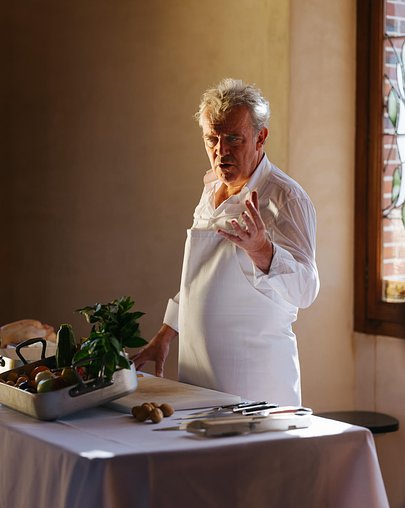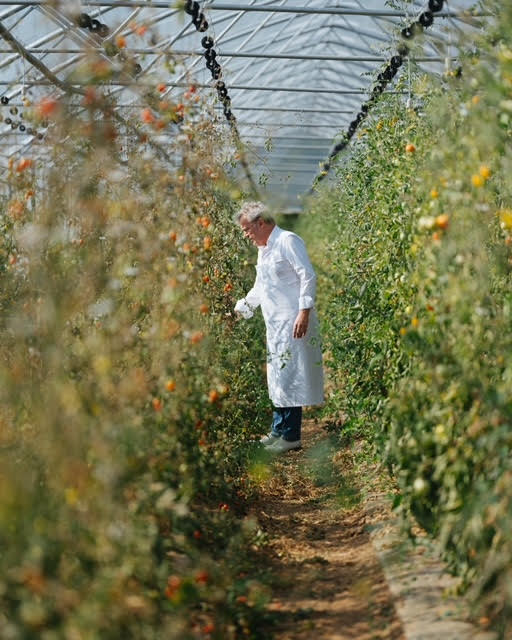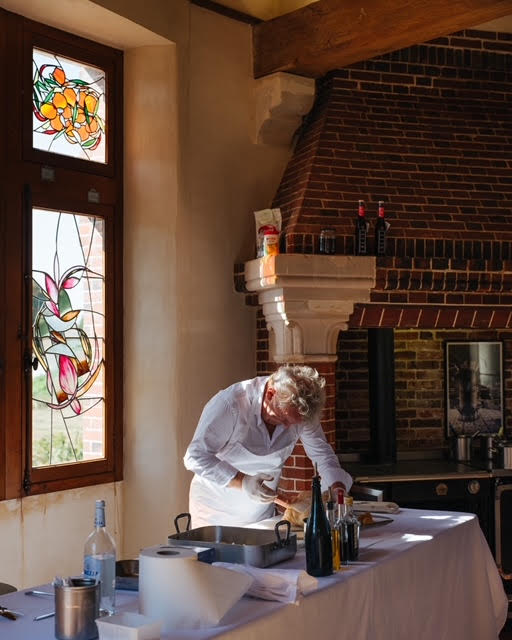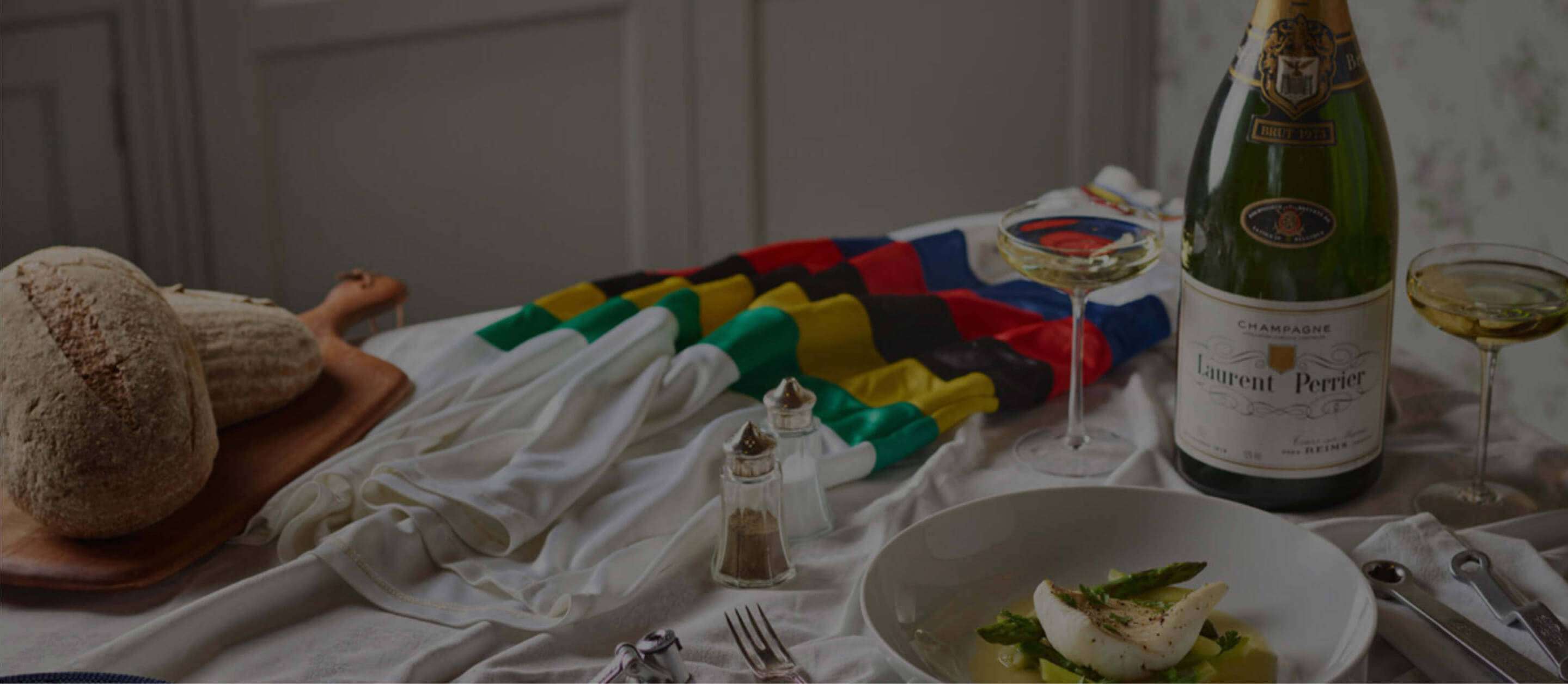
LEAD CHEF
The haute gastronomy chef who first made vegetables the focus of his cooking, the visionary Alain Passard was born in La Guerche de Bretagne. He always credits his grandmother Louise Passard for giving him his first taste of cooking and life in the kitchen and a number of his dishes at L’Arpège today pay tribute to her.
Three Michelin star L’Arpège chef Passard had an extraordinarily illustrious rite of passage. He started out in the kitchen of Michel Kéréver of Le Lion d’Or of Liffré 1971-1975, one of the rare “starred” Breton chefs of his time where he learnt the fundamental of classic cuisine. This whetted his appetite for fine dining and he went on to work under the command of the legendary Gaston Boyer at La Chaumière. Joining Alain Senderens of Parisian Restaurant L’Archestrate in 1977 was a seminal moment and Passard acknowledges that his precision and lightness of touch made a huge impact on him.

Passard opened his solo restaurant L’Arpège in 1986 in the former building of L’Archestrate that had belonged to his mentor, Senderens. It is named in tribute to his musician father, and Passard too is a talented musician and this magnificently informs his cooking.
The restaurant’s interior illustrates how Alain Passard’s quest for perfection is no less intense in the decoration of his dining room than in the heart of his haute plantcentric cuisine. The dining room is inspired by Art Deco style with a pear tree bark freize encapsulating his devotion to nature, there’s Lalique crystal, Makassari wood detail and the stained glass windows fronting the restaurant are taken from a collage by Passard, also an accomplished artist. The only painting on the wall is a portrait of Louise Passard’s Alain’s grandmother.
Trailblazer, chef Passard took red meat off this menu in 2002 as he believed he had learnt all he could about cooking with meat and wanted to discover something more and new about vegetables. It is surely thanks to Passard that vegetables now take central stage across the globe. Passard is the ultimate farm to table chef, the maestro of vegetables. He explains: “by returning to seasonality something unique and transparent happens. You witness the singularity of a chef; it works just like a good play or an opera.”


FOLLOW ALONG
Be the first to hear about new experiences and receive exclusive content from our chefs and riders.
